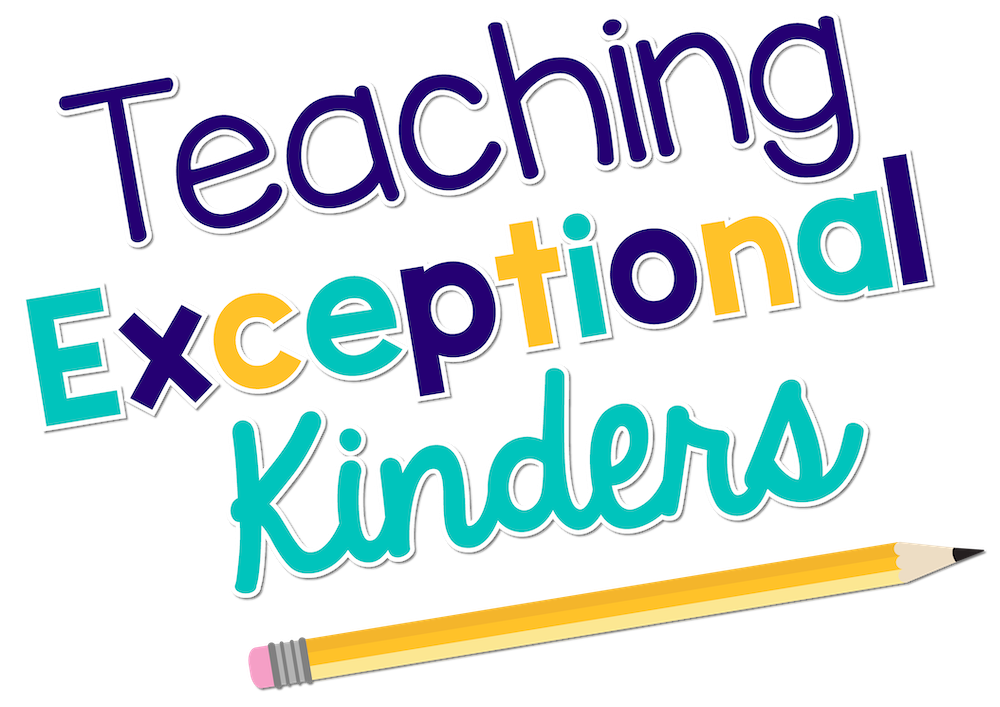Kindergarten Readiness Skills That Teachers Hope You’re Practicing at Home
Sending your child to kindergarten is an exciting but worrisome milestone. It’s common to worry about whether or not your child is ready to join a kindergarten classroom. In this post, I wanted to share the most important kindergarten readiness skills that you can practice with your child. In fact, I can almost guarantee that your child’s future teacher hopes you’re working on these particular skills at home.
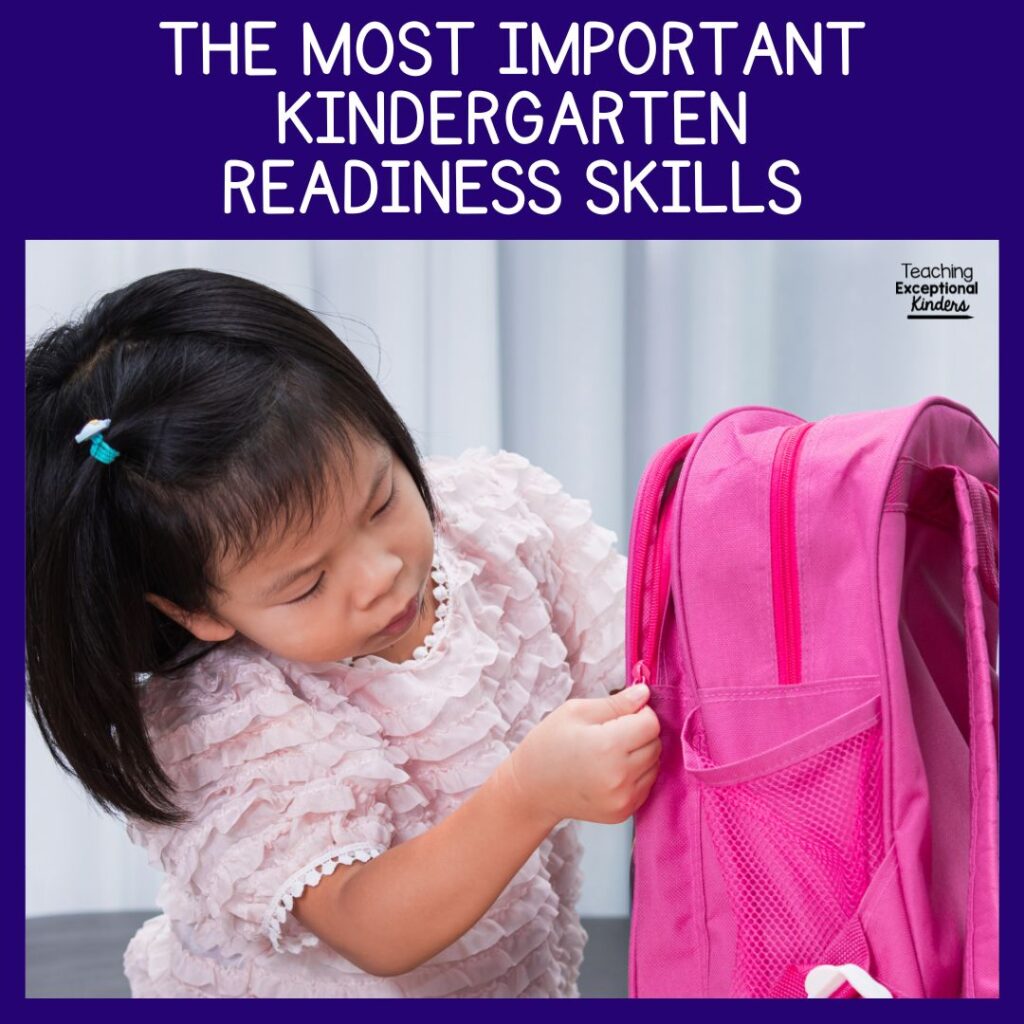
What Are Kindergarten Readiness Skills?
As you can probably guess, kindergarten readiness skills are what help students to be ready to learn when they enter kindergarten.
Some people might think that knowing the alphabet and counting to 100 means a child is kindergarten-ready. The truth is that many kindergarten readiness skills are much more important than letters and numbers!
7 Kindergarten Readiness Skills to Practice at Home
When it comes to kindergarten readiness, you have likely seen long lists and checklists of different things your child should know before kindergarten. It can be a daunting list! I wanted to narrow it down to seven of the most important skills to practice at home.
1. Self-Help Skills
Your child should be able to independently take care of their toileting needs in kindergarten. (If this is not possible due to disability, the IEP team should be aware.) In addition, it’s helpful if students can zip up their coats, button their pants, and take care of whatever fasteners they have on their shoes.
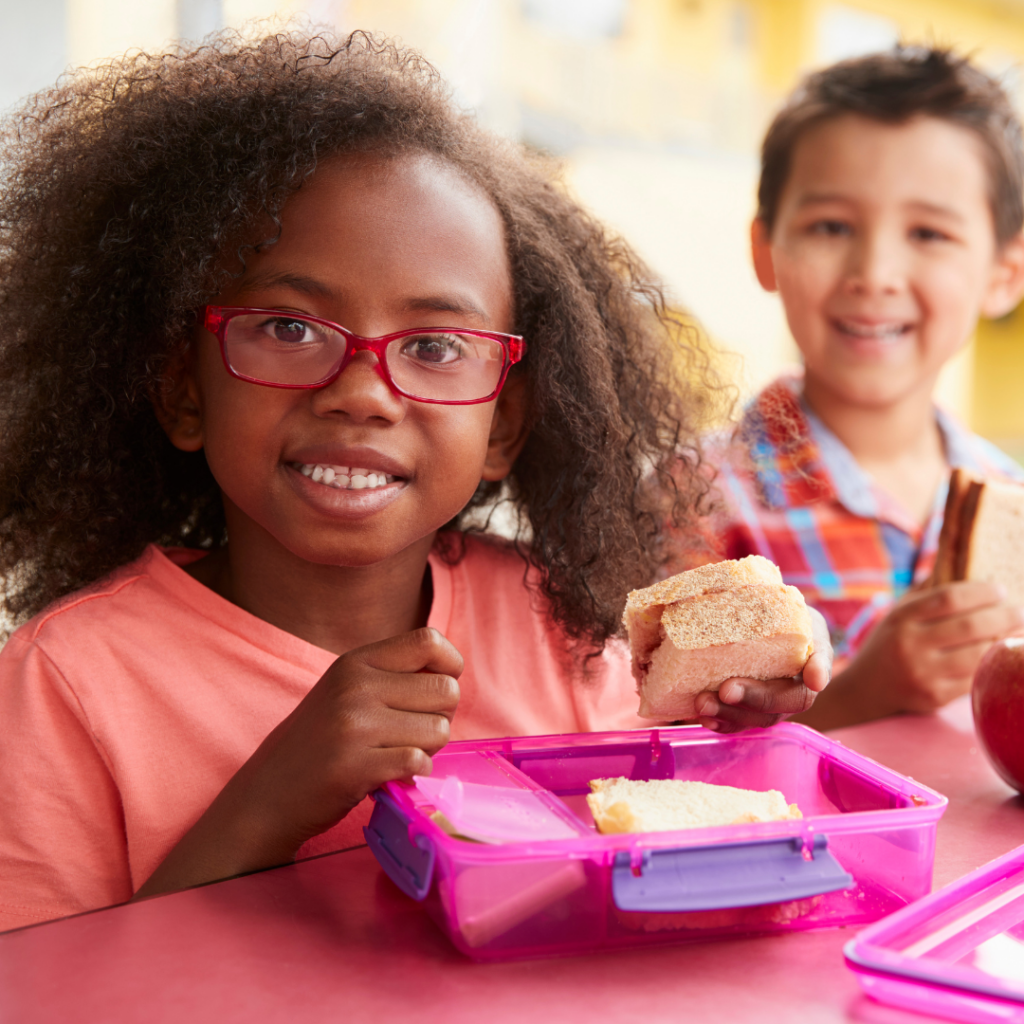
If you plan on sending your child to school with a cold lunch, it’s very helpful if they’ve had a chance to practice opening their lunchbox, storage containers, drinks, and pouches before the first day. Take a school lunchbox on your summer picnics to give your child a chance to practice!
2. Listening Skills
Being able to listen to instruction is essential to learning. The academic skills will develop over time, but teachers can’t address the academics if students can’t listen appropriately in the classroom.
Make sure your child can listen and attend to something presented by a live human (not Miss Rachel or Blippi). The public library often has storytimes or other presentations that help kids practice their listening skills. There are often additional programs available in the summer months leading up to the school year.
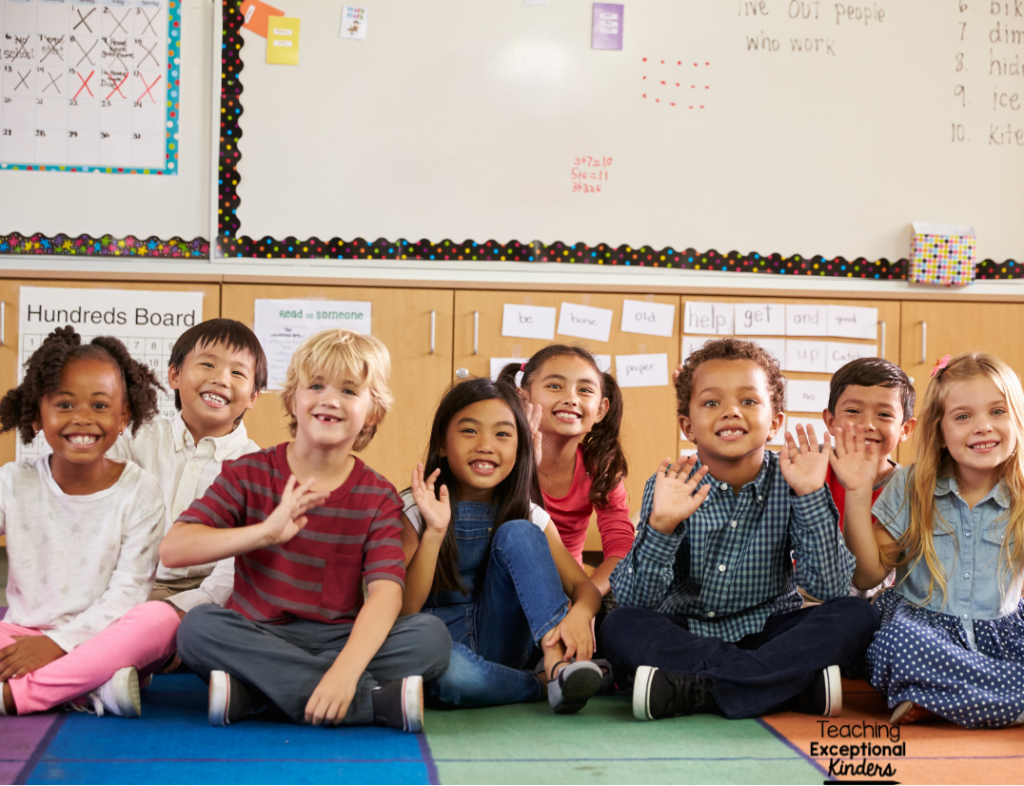
3. Social Skills
Social skills aren’t just for the playground! Cooperative learning is an important part of kindergarten, so there are many social skills that can help your child succeed at school:
- Taking turns
- Inviting a child to play
- Asking to join a game
- Saying please and thank you
- Compromising with others
- Being kind
- Asking and answering questions
Give your child a chance to practice these social skills, especially during less-structured times. The public playground is a great place!
4. Independent Problem Solving Skills
In the kindergarten setting, there will be many opportunities for your child to practice problem solving. This isn’t just conflict resolution with peers! Problem solving skills also help your child navigate the classroom setting more independently. For example, if they’re not sure where to turn in a paper, they might quietly ask a peer or watch where other peers are turning in their papers before calling out “Teacher, where do I put my paper?!”
You can help your child be a more independent problem solver by giving them a chance to figure things out before jumping in. You can also narrate your own problem-solving process to model the different situations that you navigate during the day.
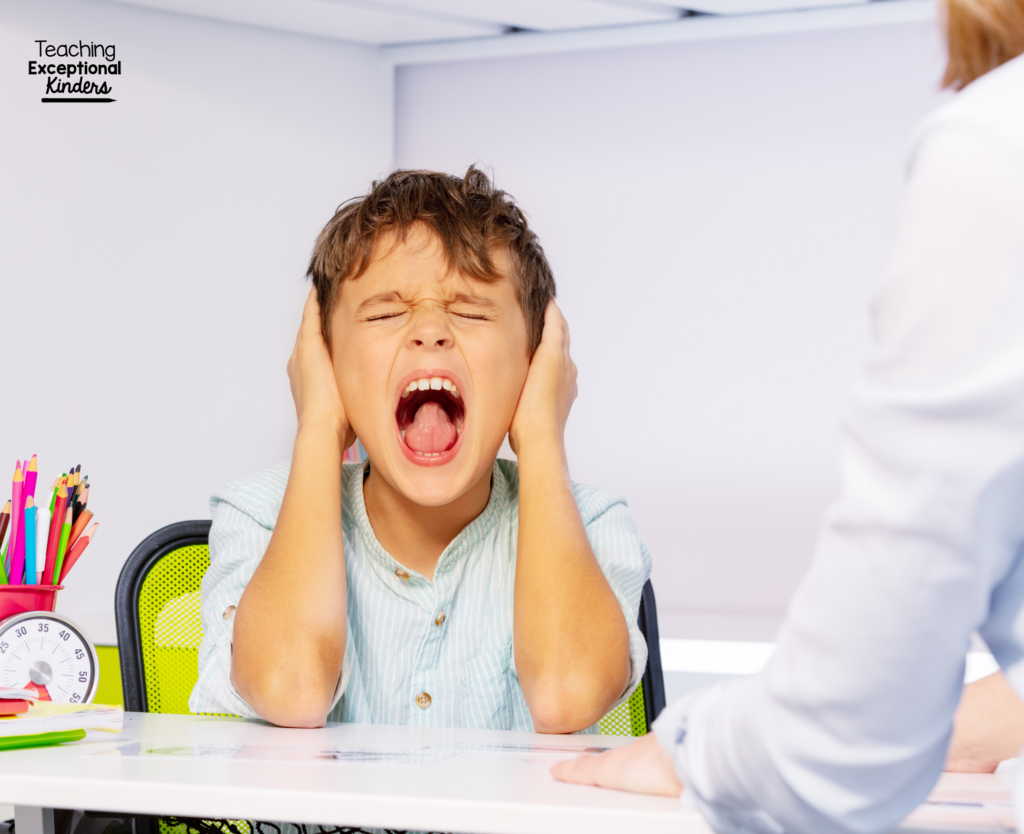
5. Self-Regulation Skills
A moment of vocalized frustration or disappointment at home is usually not a big deal and is just part of life with a preschooler. However, even small tantrums can become a significant disruption to the learning environment. Your child won’t be able to learn if they are upset!
Help your child practice their self-regulation skills before entering kindergarten. This will give them a helpful toolbox to use during situations that often arise in kindergarten, such as not getting their favorite color, not being first, or making a mistake.
6. School Tool Skills
Your child doesn’t need to have fabulous handwriting, coloring, or cutting skills before they start kindergarten. They will develop these fine motor skills over time! However, it’s very helpful if students have basic knowledge of how to use school tools safely and appropriately – especially scissors!
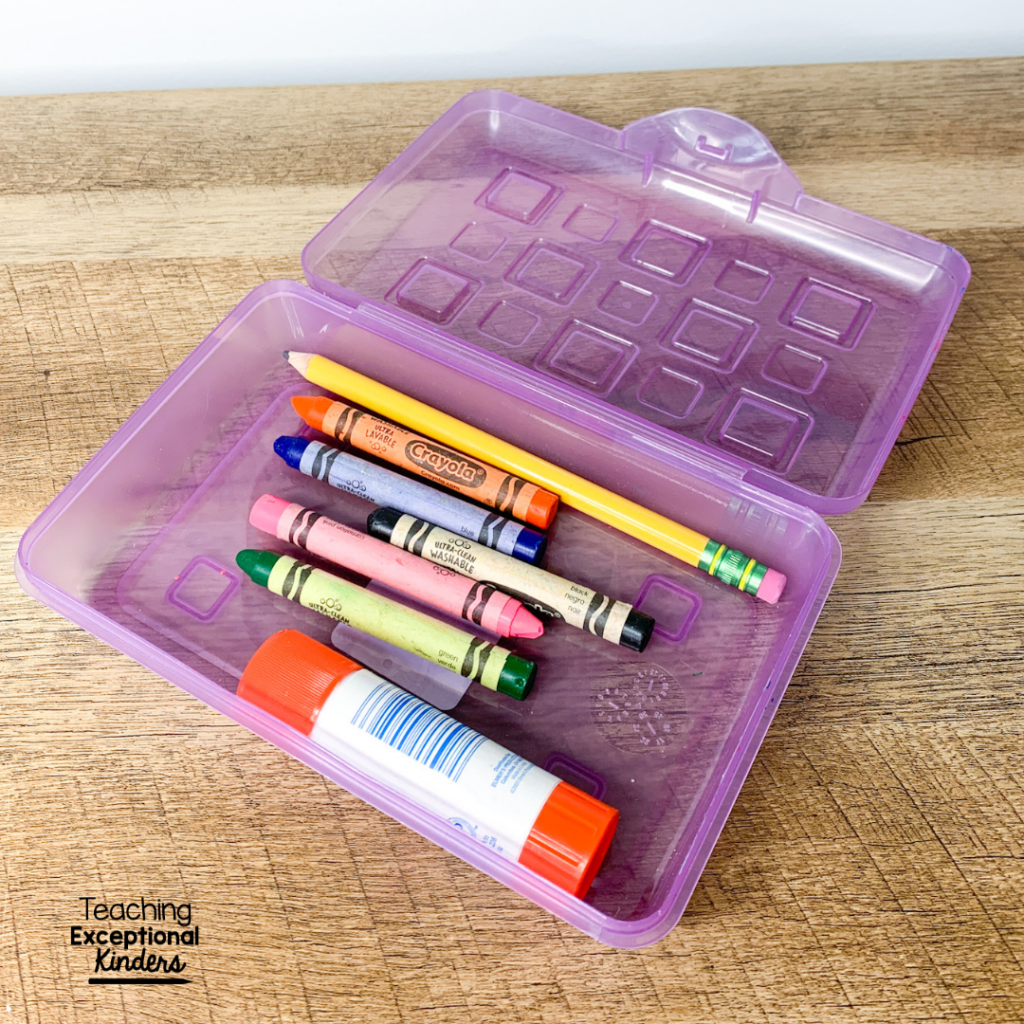
The teacher will be so grateful if your child can recap their markers and use a glue stick without twisting the whole thing out of the container. Plus, your child will be able to focus their attention on the actual learning activity instead of how to use the tools needed for the activity.
7. Academic Skills
This is last on the list because, frankly, academic skills are not the most important indicator of kindergarten readiness. The kindergarten curriculum is designed to meet the diverse needs of incoming students. Your child will grow by leaps and bounds academically over the course of the year, especially if they can listen, regulate their emotions, and interact with staff and peers appropriately.
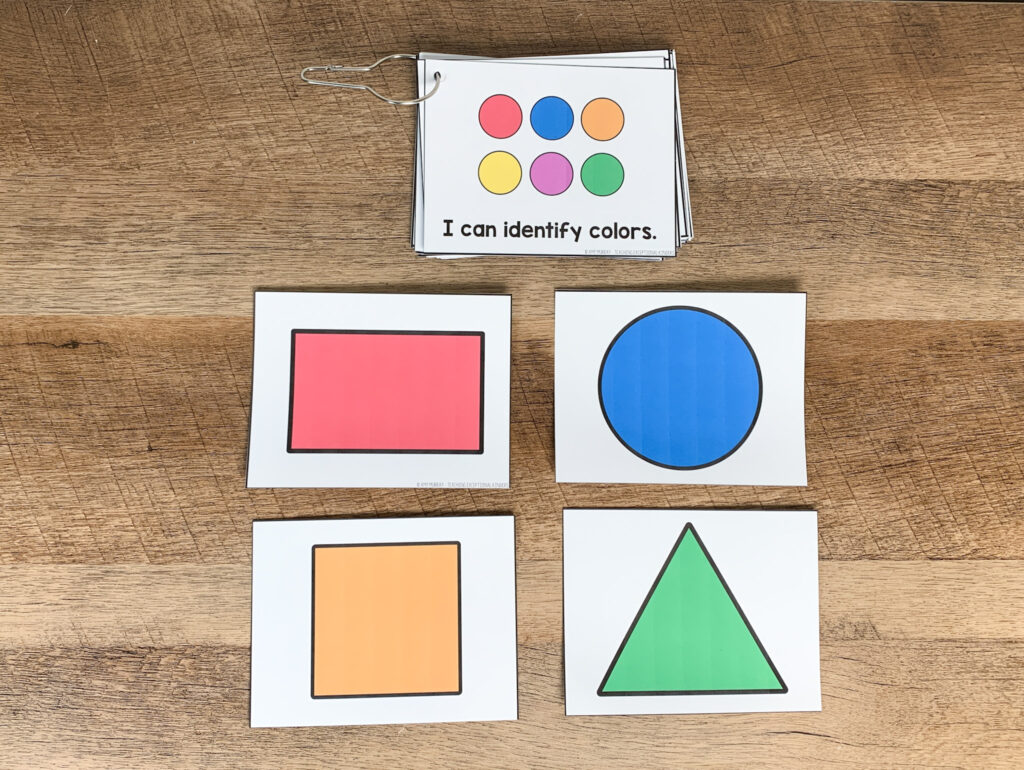
If you’d like to practice academic skills with your child before kindergarten, start with the skills that will help them navigate their school day more easily. Reading and spelling their first name is a great place to start! Identifying shapes and colors can also help your child follow directions at school, such as: “Get your blue folder from your cubby.” Counting is also a very useful academic readiness skill for kindergarten students!
Printable Kindergarten Readiness Activities
I have put together printable task cards that can help you track and practice your child’s kindergarten readiness skills. This set includes 30 different cards with basic skills for kindergarten that touch on all of the readiness categories mentioned above. This resource also includes coordinating task cards and flashcards to help your child practice these skills before starting school.
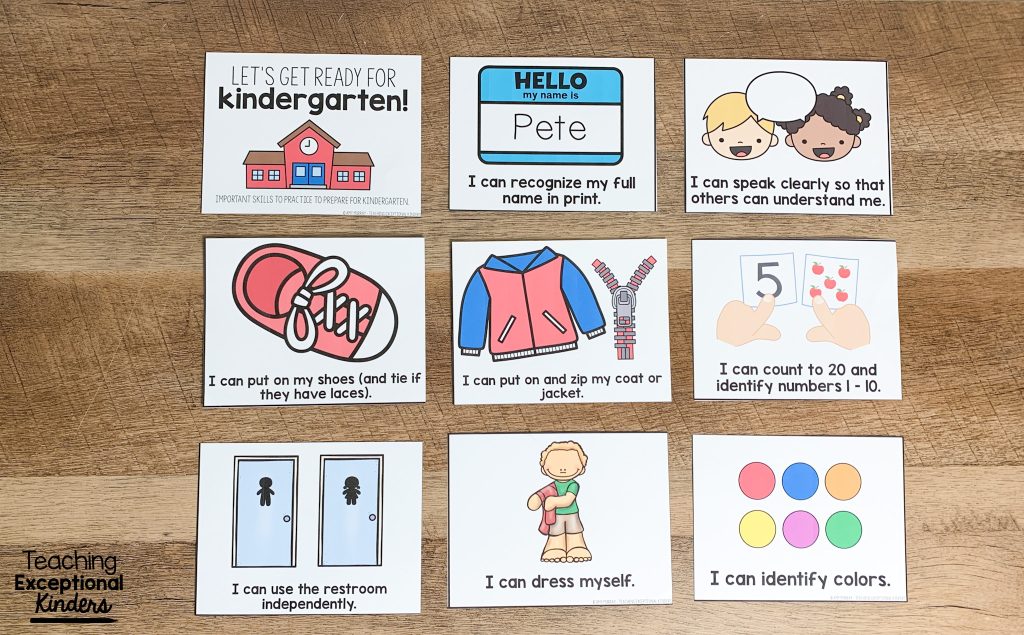
If you’d like to take a closer look at everything included in this printable resource, just click below to find it in the Teaching Exceptional Kinders shop or on TPT.
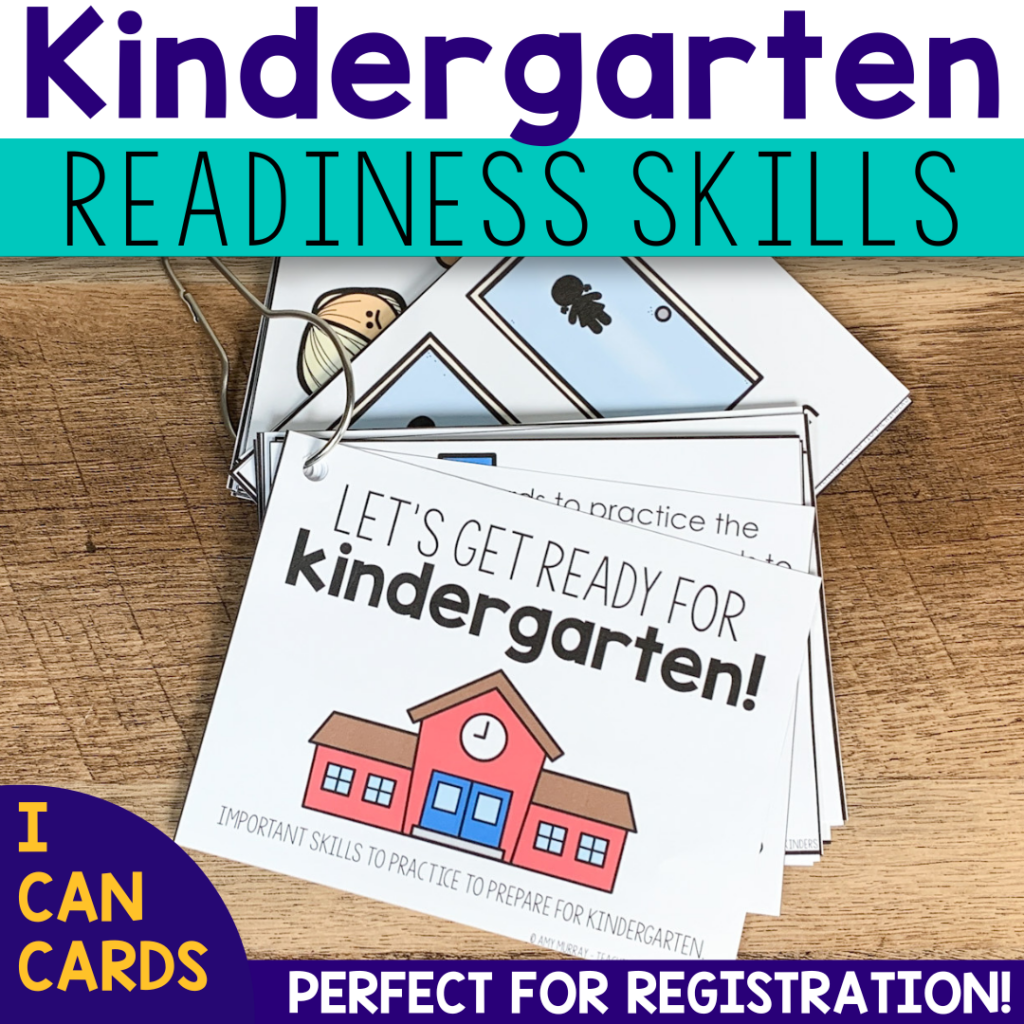
Save These Readiness Skills for Kindergarten
Be sure to save this post if you’d like to come back to it later! Just add the pin below to your favorite board on Pinterest. You’ll be able to quickly find these kindergarten readiness tips and resources when you’re getting your child ready for kindergarten.
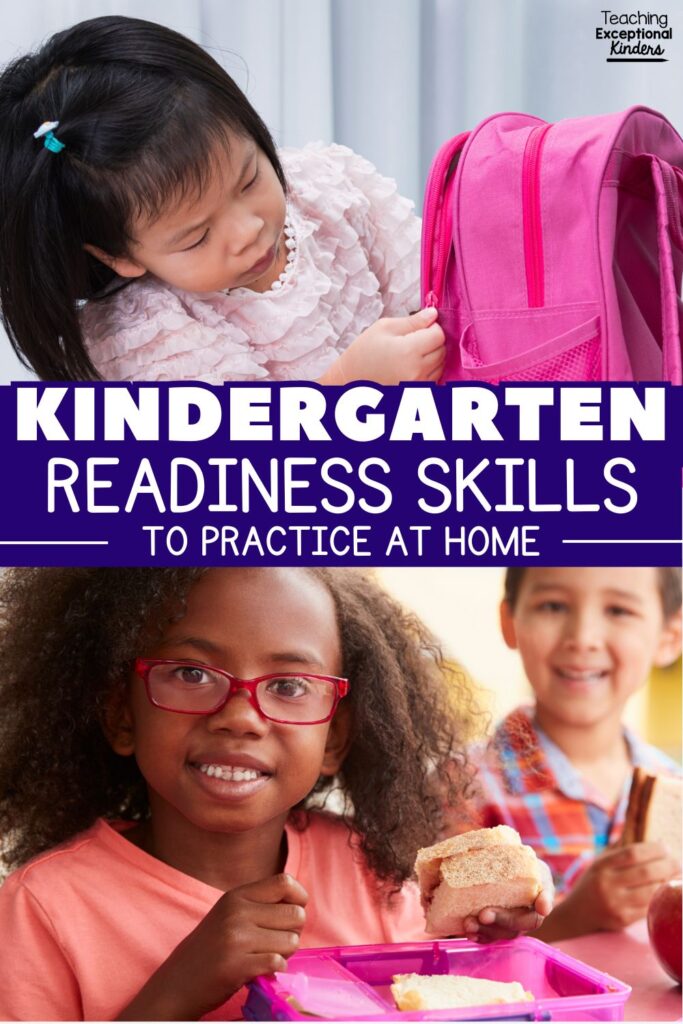
Amy
SITE DESIGN BY LAINE SUTHERLAND DESIGNS

